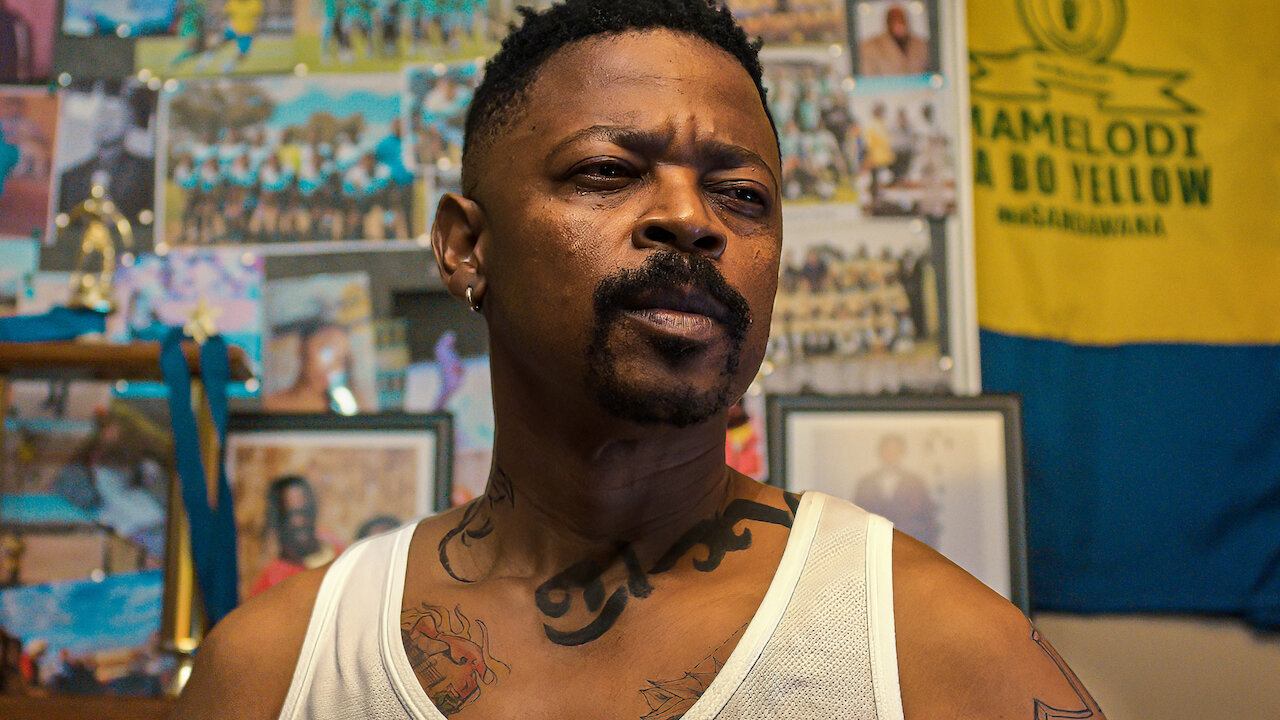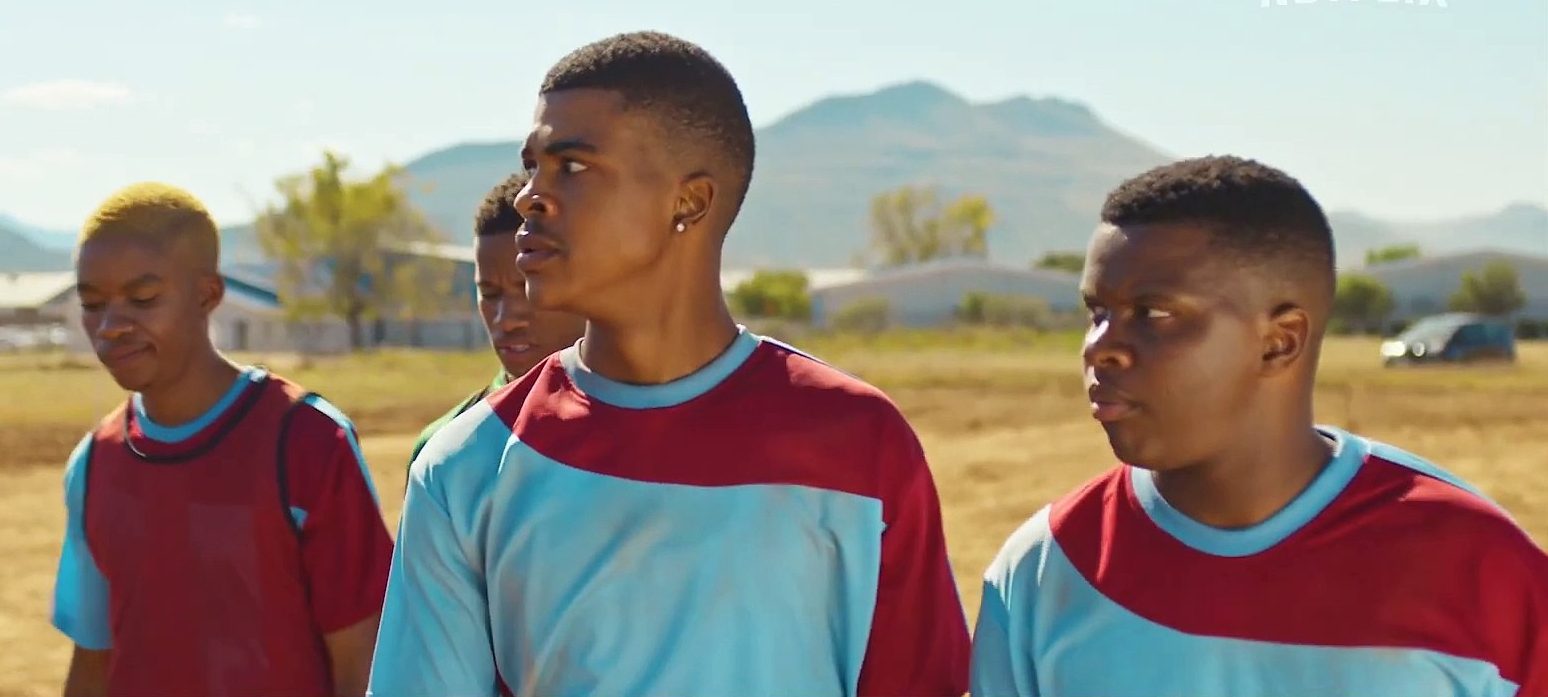In Netflix’s ‘The Queenstown Kings,’ the spotlight falls on Fezile Gigaba, a determined 11-year-old football prodigy hailing from Komani, formerly known as Queenstown. Driven by the ambition to become a football sensation, Fezile is resolute in carving his path, unburdened by the towering success of his father, Buyile Mahamba. On the flip side, Buyile, once a celebrated player, finds himself washed up and grappling with his faded glory. The storyline takes a poignant turn as Buyile, in a bid to reclaim his former eminence and rediscover his identity within the beloved realm of sports, takes on the role of coaching his son’s team.
Under the directorial vision of Jahmil X.T. Qubeka, ‘The Queenstown Kings’ boasts extraordinary performances, with Zolisa Xaluva delivering a standout portrayal as the father. However, it’s the young talent, Likhona Mgali, who shoulders much of the film’s emotional weight. The movie delves into themes of ambition, family dynamics, and the delicate relationship between past successes and present aspirations. As the narrative unfolds in the realm of sports, it explores the challenges of forging an identity and finding glory while navigating the shadows of familial achievements. While sports films have a knack for inspiring audiences with tales of triumph and resilience, let’s see if it is based on a true story or not.
The Authentic Elements in The Queenstown Kings
The film is not based in reality; it is a narrative crafted by writers Clyde Berning and Jahmil X.T. Qubeka. This collaborative effort aims to deliver a compelling tale that extends beyond the realm of sports-infused inspiration and it ventures into more profound explorations of identity, family dynamics, and the intricate bonds shared between a father and a son. Talking about his work, Qubeka said, “Creating The Queenstown Kings has truly been a labor of love, taking us on an exhilarating journey from the very inception of the idea to the delivery of the final product. Our commitment to this project was unwavering, and it has been a remarkable journey that we are incredibly proud of.”

The authenticity of ‘The Queenstown Kings’ was a collective effort, with the team and crew dedicated to infusing truth into their narrative. This commitment materialized through the film’s on-location filming in Gauteng and the Eastern Cape of South Africa, capturing the essence of the story’s setting. Director Jahmil X.T. Qubeka emphasized the importance of authenticity in portraying emotions while maintaining a compelling storyline. The success of this endeavor was attributed to meticulous planning, effective collaboration, and the unwavering dedication of the entire crew to honesty in their work. The collaborative spirit extended to the writing team, which collaborated with over 100 crew members and more than 300 extras, showcasing the film’s commitment to bringing a genuine and immersive experience to the audience.
The dedication of the actors in the film played a pivotal role in enhancing the authenticity of the characters and the overall narrative. Likhona Mgali’s commitment to his role extended beyond the script, as he joined a local football team to immerse himself in the sport, adding a layer of realism to his performance. The actor went the extra mile by spending a week living with Zolisa Xaluva, who portrayed his on-screen father, fostering an off-screen bond that translated seamlessly into their on-screen father-son relationship.
While ‘The Queenstown Kings’ is not based on a true story, its portrayal of universal emotions and grounded narratives resonate with audiences on a deeply personal level. The film captures the essence of experiences that are encountered every day, making it a story that could unfold in any corner of the world. The genuine chemistry between the actors and the authentic setting makes it a poignant and emotionally resonant cinematic journey.
Read More: Best Sports Movies


You must be logged in to post a comment.